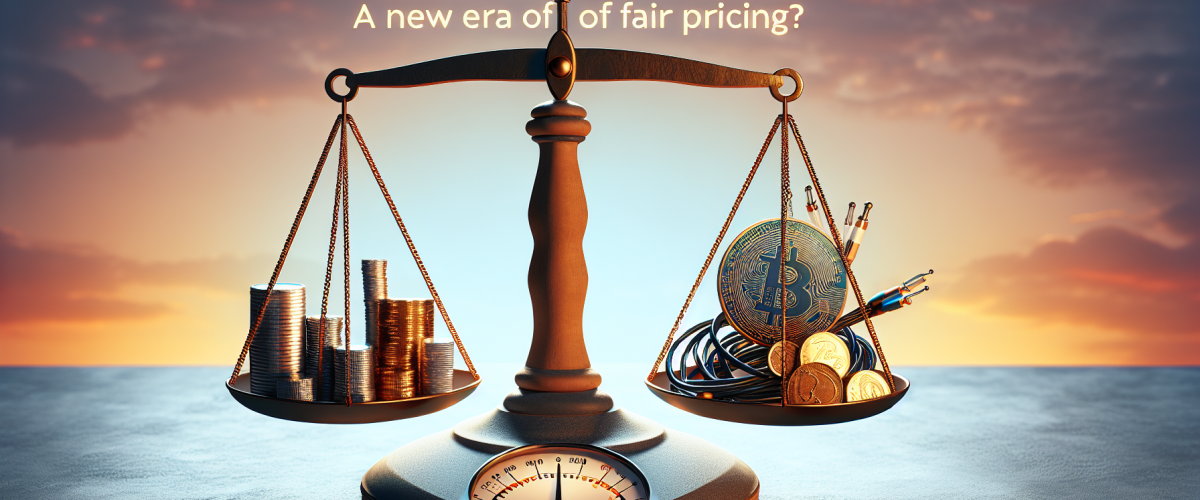
In recent years, the concept of metered services has gained significant traction across various industries, from utilities to digital content. Metered services refer to pricing models where customers pay based on their actual usage rather than flat-rate fees. This approach promises a more equitable pricing structure that caters to individual consumption patterns, potentially transforming the landscape of many industries.
The Shift Towards Metered Services
Traditionally, many services were offered on a flat-rate basis. Customers paid a set fee regardless of what they used. While this model provided simplicity, it often led to inequities where heavy users subsidized light users. Metered services challenge this paradigm, ensuring that users are billed according to their individual consumption.
A wealth of industries are moving towards metered services, including:
- Utilities: Water, electricity, and gas companies are increasingly implementing metering systems that charge consumers based on actual usage.
- Telecommunications: Mobile data plans have shifted from unlimited to tiered or usage-based pricing, allowing users to pay for what they consume.
- Digital Content Streaming: Platforms like Spotify and Netflix are experimenting with metered access for niche content, adjusting pricing based on user engagement.
- Transportation: Ride-sharing services such as Uber and Lyft charge fees based on distance and demand, highlighting the evolution of transportation pricing.
Benefits of Metered Pricing
The primary advantage of metered services is fairness. By aligning costs with actual usage, metered services can address several issues:
- Cost Transparency: Users gain clearer insights into their consumption patterns and costs, enabling informed decisions about their usage.
- Encourages Efficiency: When people pay for what they use, they may be more motivated to conserve resources, leading to overall efficiency improvements.
- Customization: Users can tailor their service plans to better fit their needs, avoiding unnecessary charges for services they do not use.
- Sustainability: Metered pricing promotes responsible consumption, which is vital in addressing global challenges like climate change and resource depletion.
Challenges and Concerns
Despite the advantages, the transition to metered services is not without challenges. A few notable concerns include:
- Accessibility: Some consumers, particularly in low-income areas, might struggle with fluctuating costs, leading to potential service shut-offs.
- Complexity: Understanding metered billing can be daunting for some users, especially in environments where regulations are rapidly changing.
- Data Privacy: Tracking consumption patterns requires robust data collection, raising concerns about consumer privacy and data security.
Real-World Examples
Several companies have successfully implemented metered pricing models, showcasing the viability of this approach:
- Water Utilities: Many municipalities have adopted smart meters that provide real-time consumption data, helping users manage their water usage effectively.
- Telecommunication Giants: Companies like AT&T and Verizon now offer flexible data plans that allow customers to adjust their usage and costs based on their needs.
- Streaming Services: Some platforms offer microtransaction models where users can pay for individual shows or features, promoting more granular user engagement.
The Future of Metered Services
As technology advances, the potential for metered services is expanding. Innovations like IoT (Internet of Things) devices can provide precise data on individual consumption in real-time, leading to a more personalized pricing model. Moreover, this trend is not limited to utilities or entertainment; metering can be applied to various sectors, including healthcare, where services can be billed based on usage.
Conclusion
Metered services herald a new era of fair pricing, promoting accountability and efficiency among consumers and providers alike. As industries continue to adapt, the goal should be to strike a balance between fair pricing and accessibility, ensuring that all consumers benefit from these advancements. By addressing the associated challenges with thoughtful solutions, metered services can contribute to a more sustainable and equitable economy.
FAQs
What are metered services?
Metered services are pricing models where customers are charged based on their actual usage rather than a flat-rate fee.
What are the benefits of metered pricing?
Benefits include cost transparency, encouragement of efficiency, customization of service plans, and promotion of sustainability.
What challenges do metered services face?
Challenges include accessibility issues for low-income consumers, complexity in billing, and concerns over data privacy.
What industries are adopting metered services?
Industries include utilities, telecommunications, digital content streaming, and transportation, among others.
How can technology enhance metered services?
Technologies like IoT can provide real-time consumption data, leading to more personalized and responsive pricing models.


